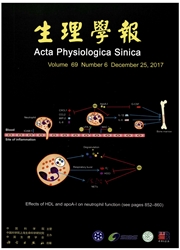

 中文摘要:
中文摘要:
2型糖尿病是全球性日益严重的公共卫生问题。目前人们普遍接受的观点是2型糖尿病是基因与环境相互作用的结果,但二者如何作用尚不清楚。众所周知,饮食因素在糖尿病发病中起关键作用,而全球性糖尿病快速流行发生于尼亚新(烟酸或烟酰胺)强化食物之后,因此不能排除长期尼亚新摄入过量与糖尿病流行有关。我们最近的研究显示烟酰胺超载及解毒减慢均可引起氧化应激和胰岛素抵抗。本文结合相关文献资料,就尼亚新代谢、糖尿病人烟酰胺代谢特点、皮肤在烟酰胺代谢中的作用、药物对烟酰胺代谢的影响、以及饮食习惯和食品强化等因素与糖尿病流行的可能关系做一概述。我们认为,糖尿病时基因与环境相互作用的本质可能是长期烟酰胺超载所致的慢性中毒与机体相对较低的解毒/排泄能力的综合反映,因此,减少尼亚新摄入可能是遏制糖尿病流行的关键措施。
 英文摘要:
英文摘要:
Type 2 diabetes is a major global health problem.It is generally accepted that type 2 diabetes is the result of geneenvironmental interaction.However,the mechanism underlying the interaction is unclear.Diet change is known to play an important role in type 2 diabetes.The fact that the global high prevalence of type 2 diabetes has occurred following the spread of food fortification worldwide suggests a possible involvement of excess niacin intake.Our recent study found that nicotinamide overload and low nicotinamide detoxification may induce oxidative stress associated with insulin resistance.Based on the relevant facts,this review briefly summarized the relationship between the prevalence of type 2 diabetes and the nicotinamide metabolism changes induced by excess niacin intake,aldehyde oxidase inhibitors,liver diseases and functional defects of skin.We speculate that the gene-environmental interaction in type 2 diabetes may be a reflection of the outcome of the association of chronic nicotinamide overload-induced toxicity and the relatively low detoxification/excretion capacity of the body.Reducing the content of niacin in foods may be a promising strategy for the control of type 2 diabetes.
 同期刊论文项目
同期刊论文项目
 同项目期刊论文
同项目期刊论文
 Effects of monocarboxylic acid-derived Cl- channel blockers on depolarization-activated potassium cu
Effects of monocarboxylic acid-derived Cl- channel blockers on depolarization-activated potassium cu 期刊信息
期刊信息
